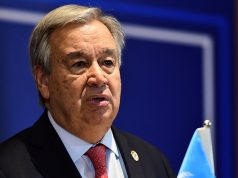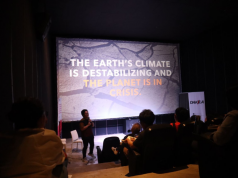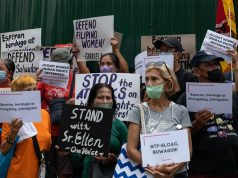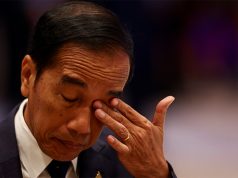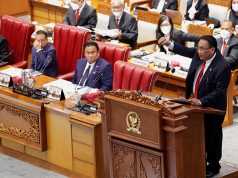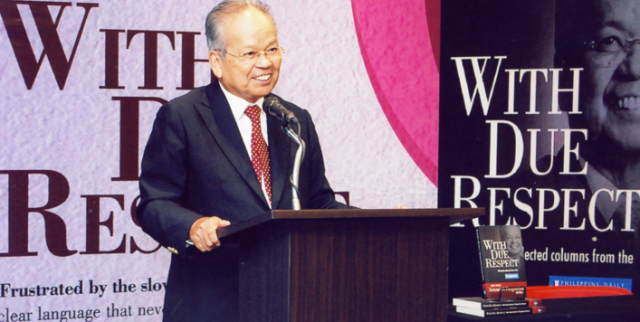
MANILA – “There is no substitute for human rights.”
The timely, categorical reminder comes from retired Chief Justice Artemio Panganiban, who gave the closing remarks at the recent Chief Justice Panganiban Professorial Chairs on Liberty and Prosperity Public Lecture at the Far Eastern University Makati.
FEU Institute of Law Dean Mel Sta. Maria had just delivered a lecture on the relationship of economics and human rights, where he argued that the human rights violations occurring in the Philippines today could be cause for the removal of GSP+ status under the European Union, where Philippine products enjoy zero or reduced tariffs when exported to the EU.
Read related story:
ON THE PRECIPICE OF ECONOMIC HARDSHIP | RIGHTS VIOLATIONS CAN HAVE CONSEQUENCES ON PINOYS’ LIVELIHOOD – LAWYER
Former CJ Panganiban took the opportunity to remind the audience that human rights are not limited to political rights, such as the rights of the accused, the right to vote, and the right to be voted into office. Prosperity was also a human right.
“Because what is it of us if we are out of jail, when we have nothing in our stomach? These rights are interdependent,” he stressed.
The chief justice during the time of then President Gloria Macapagal-Arroyo, Panganiban said that the human rights cause “becomes very relevant to all of us today and in the next few days.”
“It’s time really that we examine where we are, where we are going, what’s the future,” he said. “There are those who say that the President is popular, is still acceptable. He has what, 82 percent acceptability? It’s because of our probably, in the past, too much attention to human rights such that there have been abuses in the name of human rights… But there is no substitute for it.”
Another speaker in the event, Atty. Ray Paolo Santiago, executive director of the Ateneo Human Rights Center and the secretary-general of the Working Group for an ASEAN Human Rights Mechanism, put it simply: “What are human rights for? …It’s simply for the dignity of a person.”
“Human rights exist in order for us to be able to enhance the dignity of a person, to be human,” he reiterated.
There is a popular narrative today that human rights only referred to the rights of the accused (which people wrongly substituted with the word “criminal”, which in truth meant that there had already been a conviction of that person).
Beyond civil, political rights
But human rights go beyond civil and political ones. Jobs, wages, social security, the right to belong, and the right to found a family are also human rights, Santiago explained.
And the role of the government is “to respect, protect, and fulfill human rights.” By respect, it meant that the government itself should not violate them. By protect, it meant that if they were violated, there must be a mechanism to exact accountability. And by fulfill, it meant that if there was no mechanism, the government must do something to remedy that gap in human rights protection.
“But why the government?” Santiago asked. “Because the government is the one big institution where we surrendered part of our freedoms and our rights to be governed. And that government is the best institution, collectively, to guarantee us enjoying these rights.”
By the government, he referred to the three branches: the executive, legislative, and judiciary.
“A lot of people think when we talk about human rights, it is the Commission on Human Rights that protects our rights. It is not. The Commission on Human Rights is the watchdog of the government. What protects our rights are those three branches of government,” Santiago pointed out.
The legislature is in charge of crafting laws so that citizens could be protected, the executive has to implement these laws, and the judiciary, if a case is brought before it, has to exact accountability based on what the law provided.
Meanwhile, according to Ateneo School of Government Dean Ronald Mendoza, “Trade can be a powerful device to promote human rights by actually empowering people economically so that they can ask and demand for their human rights.”
He pointed out that like in the GSP+ status of the Philippines in relation with the EU, the putting together of trade and human rights was not a recent phenomenon.
England had signed treaties with the United States, Portugal, Denmark, and Sweden to ban the trade in slaves. And in the late 19th Century, the US, England, Australia, and Canada banned trade in goods made by conflict labor.
Rights-based trade pacts now the norm
Mendoza added that in the 1980s and 1990s, the EU, the US, and other developed countries began incorporating loose and non-binding human rights language in their preferential trade agreements. But Canada, Mexico, and the US were the first countries to include explicit human rights provisions in a trade agreement.
“It is estimated that over 75 percent of the world’s governments now participate in preferential trade agreements with human rights provisions,” Mendoza said. “This is not a small practice. It is actually the general practice in today’s world.”
Adding to the discussion, University of San Carlos School of Law and Governance Dean Joan Sarausos-Largo said that Filipinos could not profess to be concerned with the plight of the masses while subordinating the importance of human rights.
“If the end goal is the upliftment of the lives of the many, as it should be, human rights should be just as important as any other central goal of the government, because human rights are essential to the stability of the country, and stability is essential in attracting investments, and investments are essential to growth and development,” she stressed.




